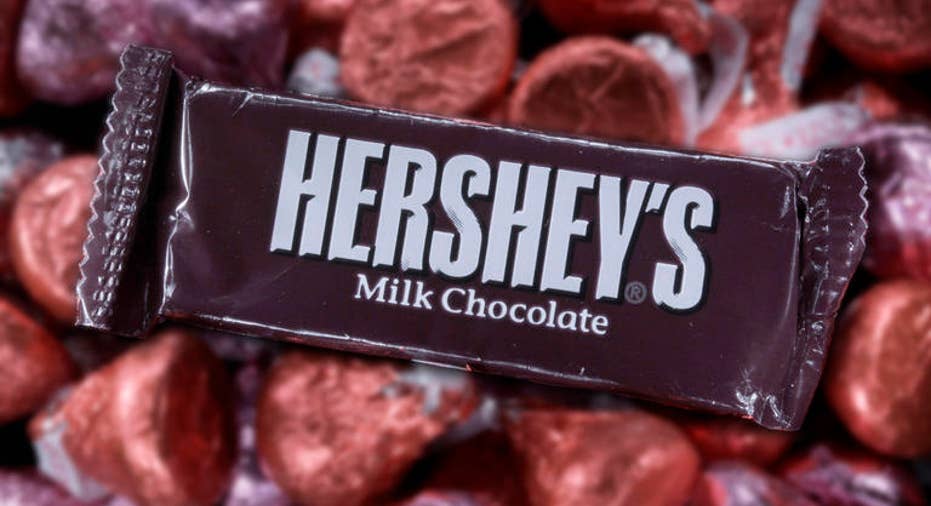Hershey's Trust Has History of Vetoing Deals

The roughly $23 billion bid for Hershey Co (NYSE:HSY). by snack maker Mondelez International (NYSE:MDLZ). won't happen without the approval of the chocolate maker's largest shareholder.
And that key shareholder, Hershey Trust Co., has a long and complicated history of eschewing deals.
A shake-up in the trust's board membership this year, a need for diversification, and an investigation by the state's attorney general could change those dynamics. But with 8.4% of the famous company's common stock and 81% of its voting power, the trust has shown few signs of changing its behavior in recent years.
The trust, set up by chocolate icon Milton Hershey back in 1905, controls an approximately $12 billion endowment for the Milton Hershey School, which runs a school in the town for underprivileged children, and related entities. The trust's mandate extends beyond maximizing shareholder value.
Back in 2002, the trust blocked an acquisition of Hershey by Wm. Wrigley Jr. even though the deal appeared to accomplish all the goals the trust had set for itself: dilute its investment in Hershey, get a big premium and maintain its relationship to the community of Hershey, Pa. In a last-minute twist, the trust rejected bids from Wrigley as well as a joint bid from Nestl� and what was Cadbury Schweppes at the time.
The community of Hershey, Pa., and alumni of the Milton Hershey School had protested a sale of Hershey, fearing it would hurt the town. Despite the desire to decrease its exposure to the U.S. candy market, the trust ultimately succumbed to the intense public opposition, said a person close to the board at the time.
Shortly after, the trust changed its bylaws making it harder for members to vote for a sale in the future.
The Hershey Trust's history of thwarting deals reached an apex in 2007. Then-Cadbury CEO Todd Stitzer had approached Hershey CEO at the time, Richard Lenny, in early 2007 about combining the two companies to create a "global confectionery powerhouse." But when the manager of the trust's daily operations learned about the potential deal talks, he accused Mr. Lenny of withholding information from the trust. Trust members also later accused the CEO of not detailing the performance woes of the company.
The dust-up resulted in the resignation of Mr. Lenny and eight Hershey directors in what a local paper dubbed "the Sunday night massacre." By the time the Hershey Trust tried to resume talks with Mr. Stitzer in late 2007, the climate for doing a deal had chilled.
Mondelez ended up acquiring Cadbury in 2010.
The trust now has about two-thirds of its endowment tied up in Hershey stock.
Earlier this year, the trust appointed three new directors, and the Pennsylvania attorney general's office is seeking the resignation of several longstanding board members.
New members may be in favor of diversifying more by selling the company, which has been struggling in recent years to keep up with the change in consumer taste in the U.S.
About three-quarters of Mondelez's sales come from outside North America, whereas 88% of Hershey's sales are domestic. Mondelez also has a much larger snack business, with brands like Oreo cookies and Ritz crackers. Hershey has been bulking up its snack profile with acquisitions of Krave beef jerky and other small brands.
"The trust essentially has the veto vote," said Jack Skelly, food analyst at Euromonitor International.
But that won't necessarily stop Mondelez from trying. "I think they're more than happy to keep driving this. They wouldn't have started the process of this if they didn't they had a good chance."
Julie Jargon contributed to this article.
Write to Annie Gasparro at annie.gasparro@wsj.com



















